A crisis can strike at any time—whether it’s an economic downturn, a global pandemic, a natural disaster, or an unforeseen disruption in your supply chain. In these times of uncertainty, one of the greatest challenges for businesses is maintaining their visibility and relevance. How do you stay top-of-mind when consumers are distracted, when their behaviors shift rapidly, and when your industry is in upheaval? The answer lies in a combination of strategic communication, adaptability, and creative approaches to engaging with your audience.
In this in-depth guide, we will explore the strategies, techniques, and best practices to help your business stay visible, connected with your customers, and resilient in the face of a crisis. Let’s dive in.
Why Staying Visible is Critical During a Crisis
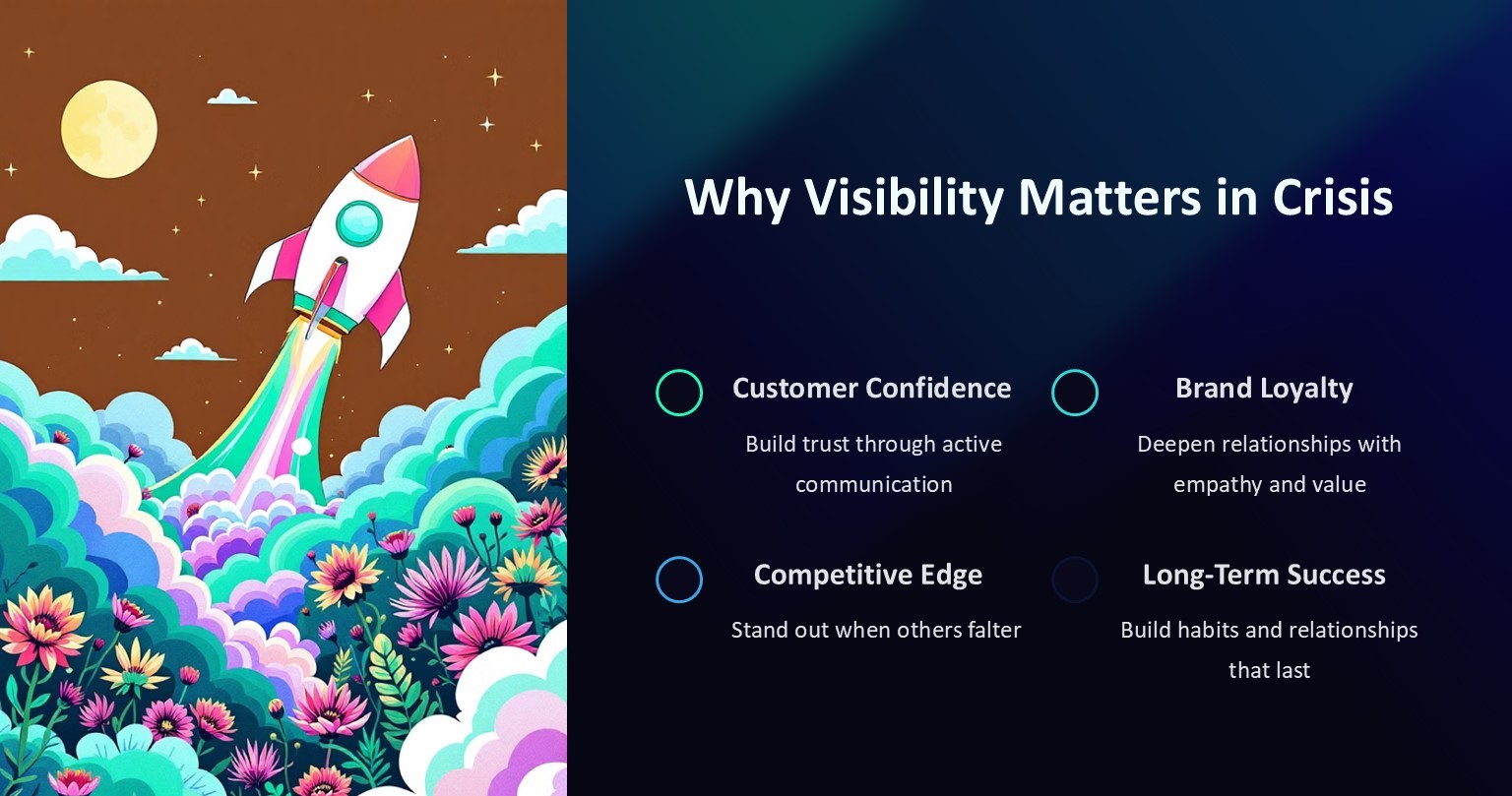
Before we dive into the “how,” it’s important to first understand why keeping your business visible during a crisis matters so much. During periods of crisis, consumers and businesses alike are bombarded with challenges and distractions. However, maintaining visibility isn’t just about ensuring people know your brand exists—it’s about building trust, sustaining relationships, and positioning yourself for success post-crisis.
Here’s why staying visible during a crisis is crucial:
- Customer Confidence: People often turn to brands they trust during tough times. If they see your business actively communicating, responding to their needs, and providing value, they will feel more confident in staying loyal to you.
- Brand Loyalty: A crisis provides an opportunity to deepen your relationship with existing customers. If you communicate well, demonstrate empathy, and deliver on your promises, your customers are more likely to stay loyal and even advocate for your business.
- Competitor Advantage: While many businesses might scale back or go into hiding during a crisis, staying visible can give you an edge over competitors. When others falter, those who stay active have the chance to stand out.
- Long-Term Success: A crisis doesn’t last forever, but the habits and relationships you build with your customers now can impact your business long after the crisis is over. A visible business is one that remains in the minds of customers, even when things return to normal.
How to Keep Your Business Visible During a Crisis
1- Open and Transparent Communication
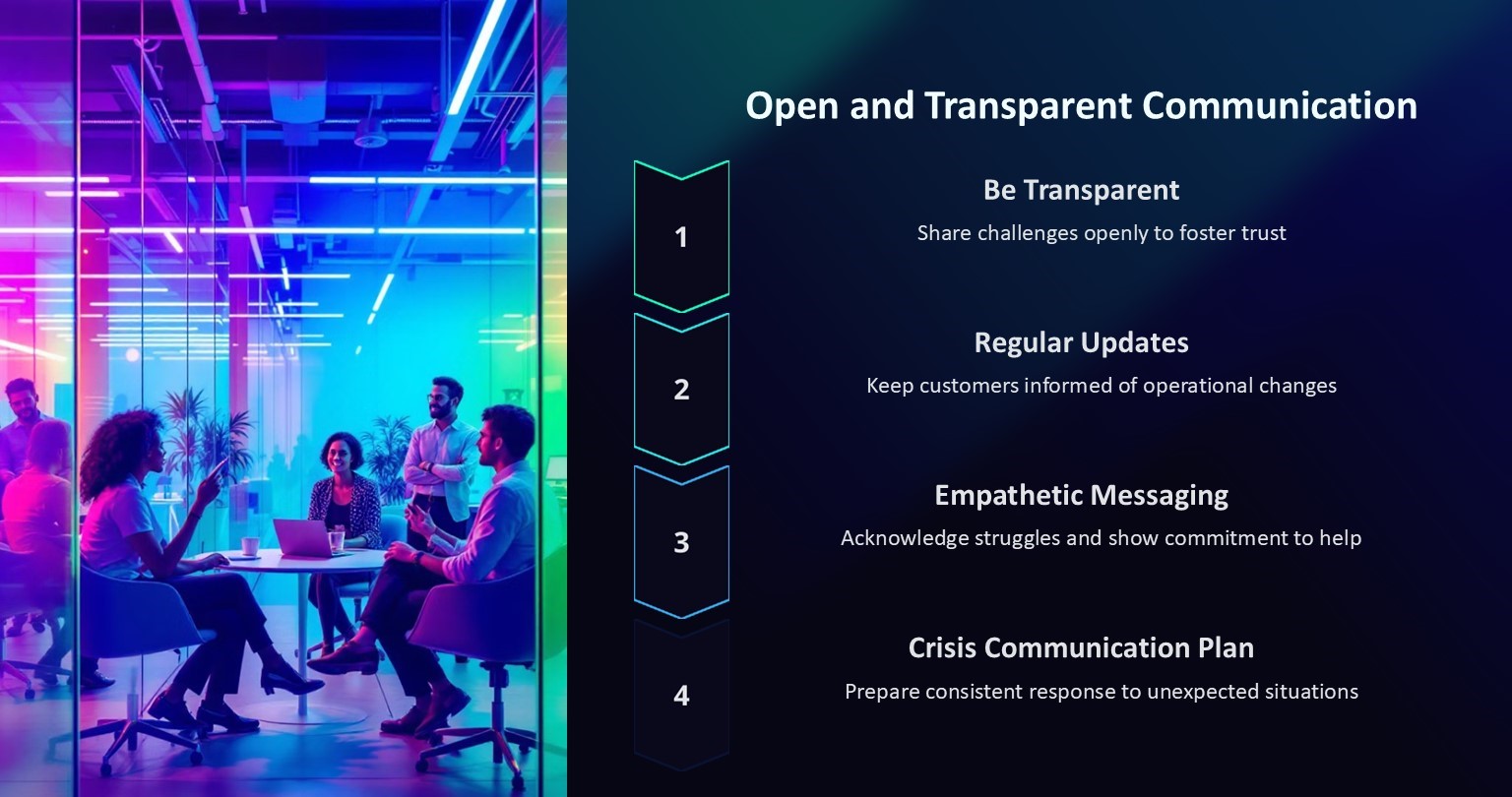
One of the most critical elements of staying visible during a crisis is clear, honest communication. Customers and stakeholders alike are looking for reassurance and transparency. Failing to communicate or, worse, being vague or misleading, can lead to mistrust and damage to your reputation.
Key Communication Strategies:
- Be Transparent: If your business is facing challenges—whether it’s supply chain issues, delays, or operational changes—let your customers know. Transparency fosters trust and makes customers more likely to be understanding.
- Regular Updates: Keep your customers informed about any changes in your business operations, whether they’re related to hours of operation, product availability, or safety measures. This could be via email, social media, or your website.
- Empathetic Messaging: A crisis impacts people’s lives, so your messaging should reflect empathy. Acknowledge the struggles your audience is facing and show how you’re committed to helping them during this time.
- Create a Crisis Communication Plan: Having a clear plan in place allows you to respond to unexpected situations with consistency. Your plan should include who will be responsible for communication, the platforms to be used, the frequency of updates, and the key messages to be conveyed.
Practical Example:
A local gym facing temporary closure due to a pandemic may send out an email to members explaining the closure, highlighting safety measures, and offering online classes or virtual consultations. The message should emphasize that the business cares about the members’ health and well-being and provide clear instructions on what actions customers can take in the meantime (such as accessing online resources).
2- Strengthen Your Digital Presence
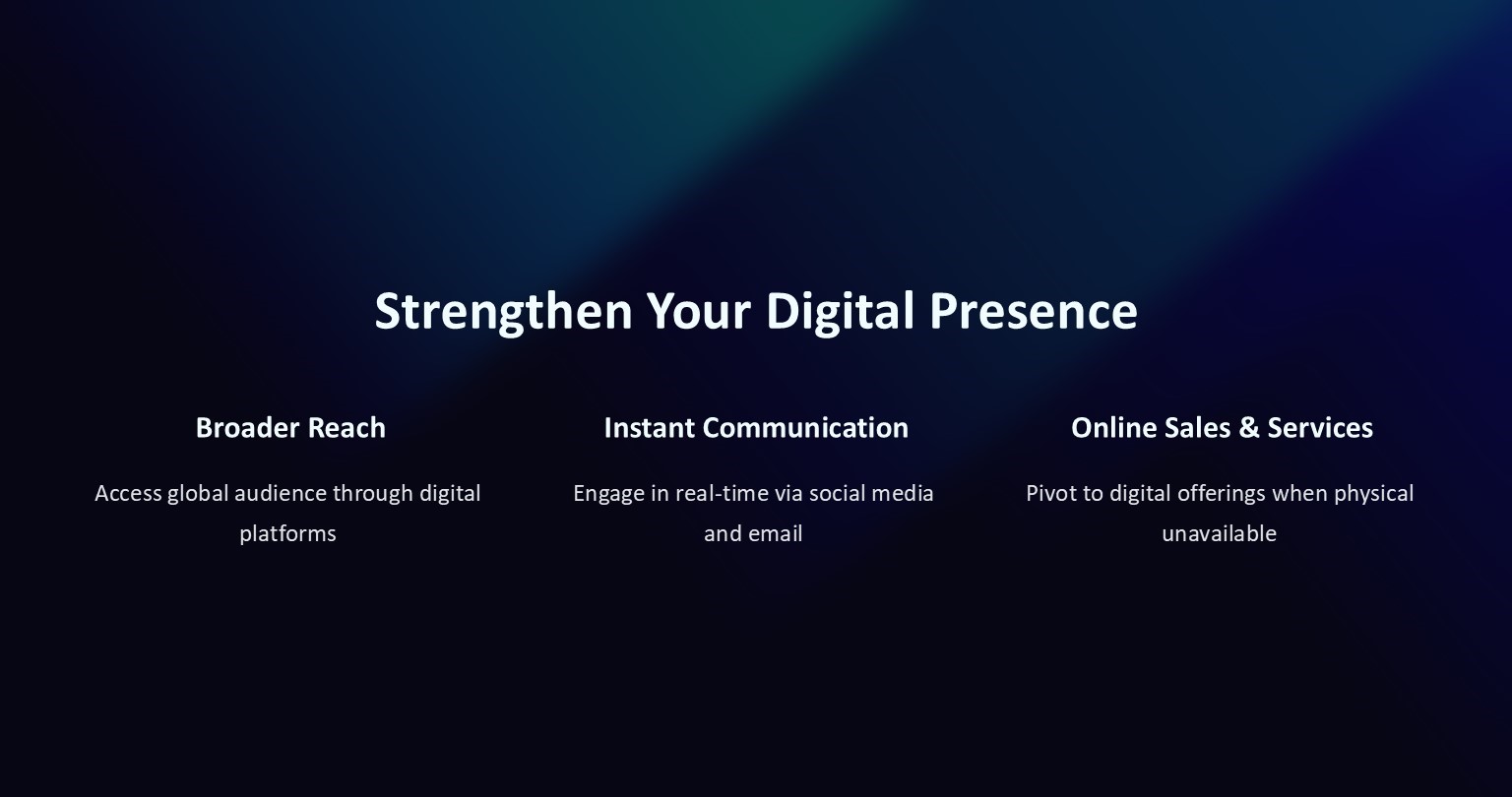
In today’s digital age, an online presence is indispensable. If your business relies on physical traffic, a crisis may force you to pivot to digital channels. But even if you have a strong online presence, it’s essential to intensify and optimize that visibility during a crisis.
Why Digital Presence Matters:
- Broader Reach: Digital platforms are accessible to a global audience. If your physical store is closed or your local market is affected, having an active online presence ensures you don’t lose touch with potential customers.
- Instant Communication: Social media platforms, your website, and email marketing provide instant, real-time communication channels to engage with customers, answer questions, and address concerns.
- Online Sales & Services: If your physical products or services are unavailable, you can pivot to digital offerings—whether that’s virtual consultations, downloadable products, or online courses.
Digital Visibility Strategies:
- Search Engine Optimization (SEO): Optimize your website to ensure your business remains discoverable on search engines like Google. Use relevant keywords, optimize your site’s speed and mobile-friendliness, and ensure you’re listed in Google My Business.
- Email Marketing: Continue to send regular newsletters or updates to your email list, offering value through helpful content, promotions, and crisis-specific updates. Ensure your emails are empathetic and relevant to the current situation.
- Engage on Social Media: Social media is a direct channel to engage with your audience. Increase your posting frequency, create crisis-related content (e.g., helpful tips, reassuring messages, or community support), and interact with your followers in a genuine and timely manner.
- Paid Digital Advertising: During a crisis, organic reach on social platforms can decrease due to increased competition for attention. Paid ads on platforms like Google Ads or Facebook can amplify your reach and drive traffic to your site or specific promotions.
as catherinemee says:
Share relevant updates, offer helpful tips, and engage with your followers to stay top of mind. Use social media to showcase how your business is adapting and addressing the crisis, which can instill confidence and trust in your brand.
3- Adapt Your Products and Services
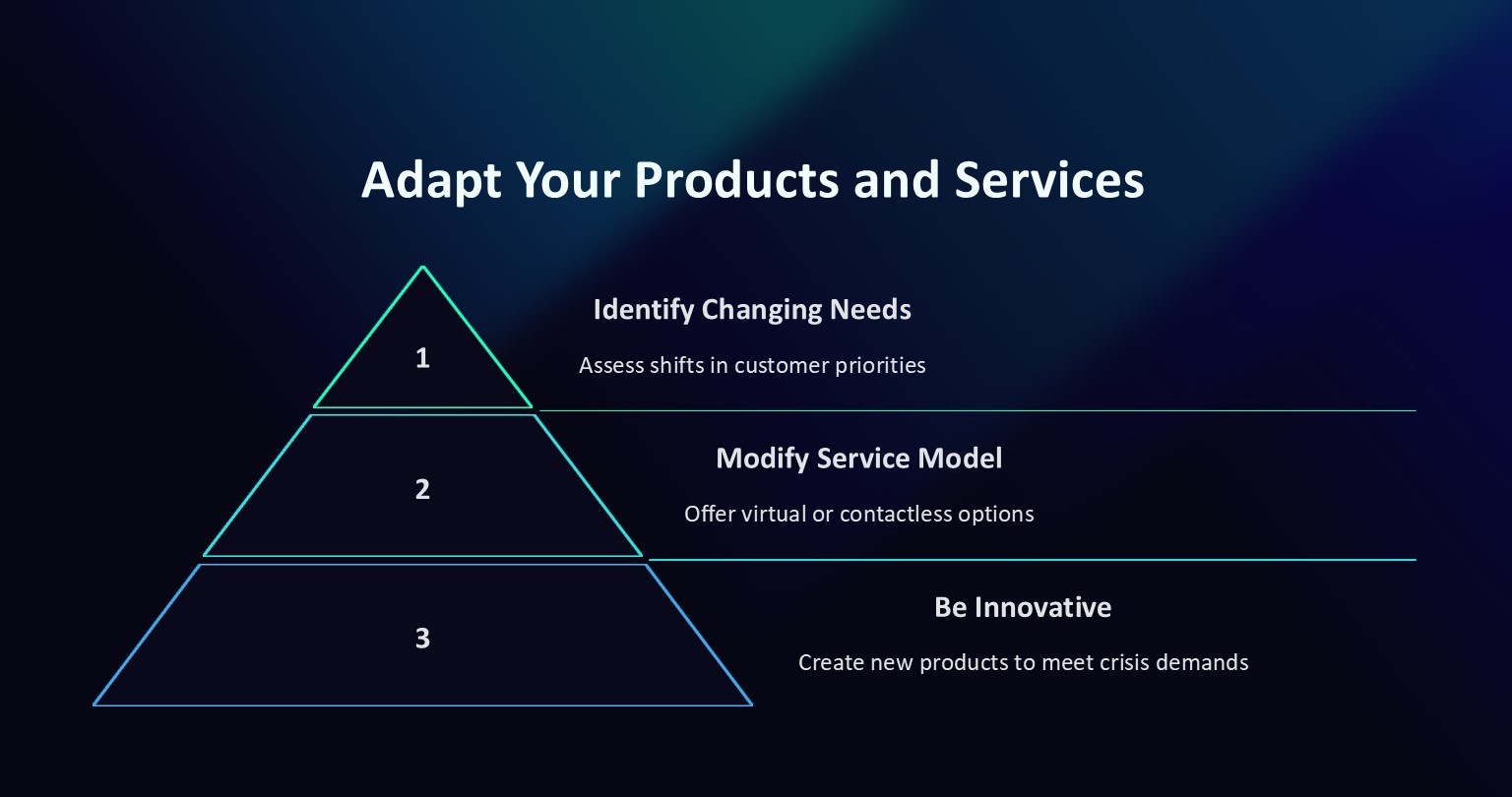
A crisis often leads to a shift in consumer behavior and demand. While some of your usual offerings may be less relevant during a crisis, others may be in higher demand. To stay visible, you need to be able to pivot quickly and adapt your products or services to meet the changing needs of your audience.
How to Adapt Your Offerings:
- Identify Changing Needs: Assess the ways in which your customers’ priorities may have changed due to the crisis. For example, if you run a travel agency during a pandemic, you might offer virtual travel experiences or focus on domestic travel packages instead of international trips.
- Modify Your Service Model: If face-to-face interactions are not possible, consider offering virtual services, online ordering, or contactless delivery options. If your business is in the entertainment or fitness industry, providing online content such as virtual classes, webinars, or live events can be a valuable pivot.
- Be Innovative: Sometimes, a crisis presents an opportunity to innovate. A clothing brand could start producing face masks or other essential items. A restaurant could offer meal kits or grocery delivery options. Use the crisis as an opportunity to showcase your creativity and relevance.
4- Focus on Customer Loyalty
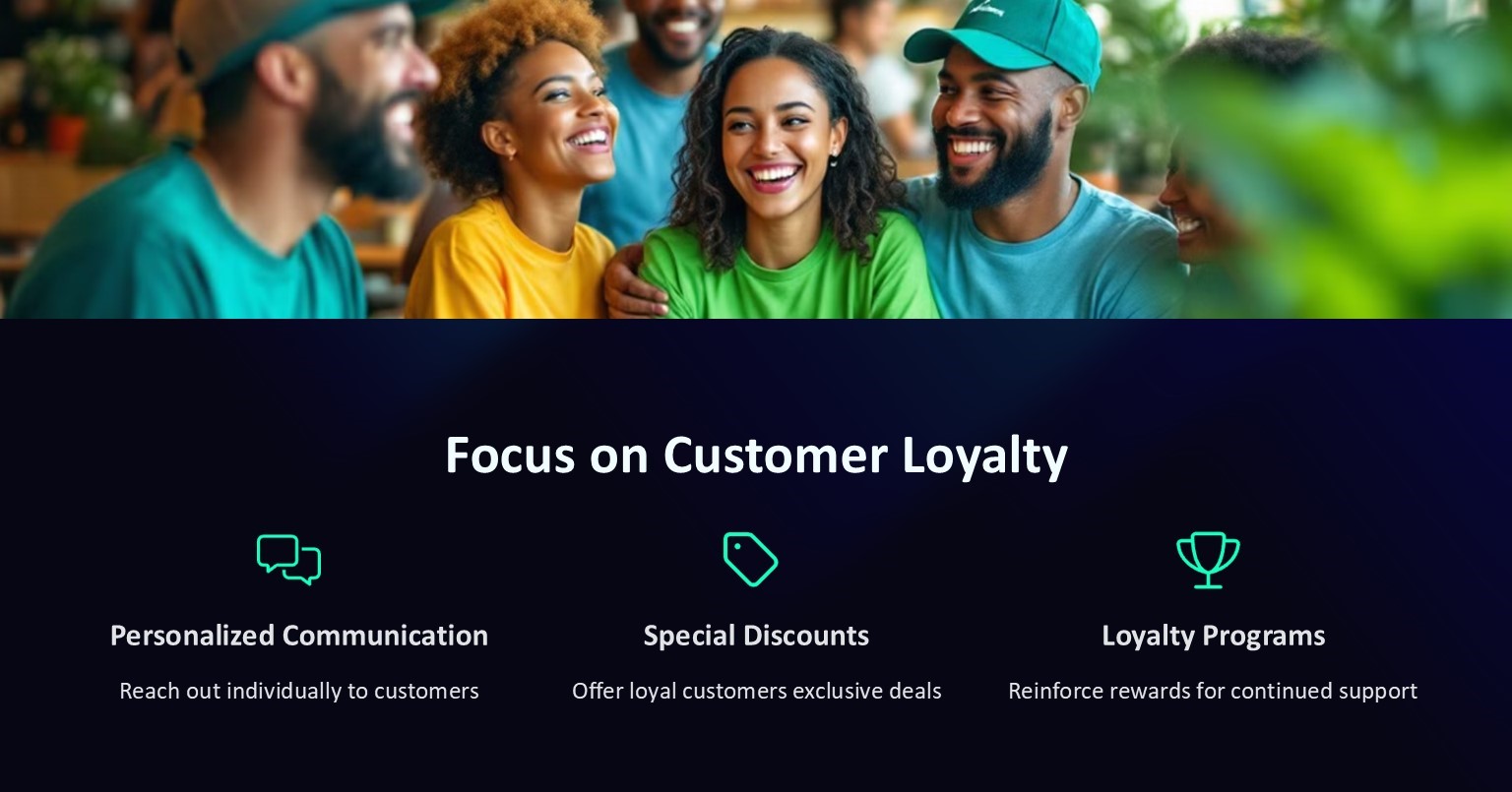
During a crisis, your existing customers are your strongest asset. By maintaining strong relationships with your loyal customer base, you can ensure they continue to support you, even in challenging times.
Loyalty-Building Strategies:
- Personalized Communication: Reach out to customers individually (via email or phone) to check in and let them know you’re there for them. Personalized messages go a long way in building strong connections.
- Offer Special Discounts: During difficult times, customers appreciate discounts and promotions. Offer your loyal customers special deals, early access to new products, or exclusive promotions as a token of appreciation for their continued support.
- Loyalty Programs: Reinforce your loyalty program by offering more rewards or introducing new ways for customers to earn points. This not only strengthens your relationship with existing customers but also incentivizes repeat purchases.
- Show Gratitude: In times of uncertainty, showing gratitude is crucial. A simple “thank you” can go a long way. Publicly thank your customers for their loyalty through social media posts or special mentions in your communications.
5- Leverage Influencer and Affiliate Marketing
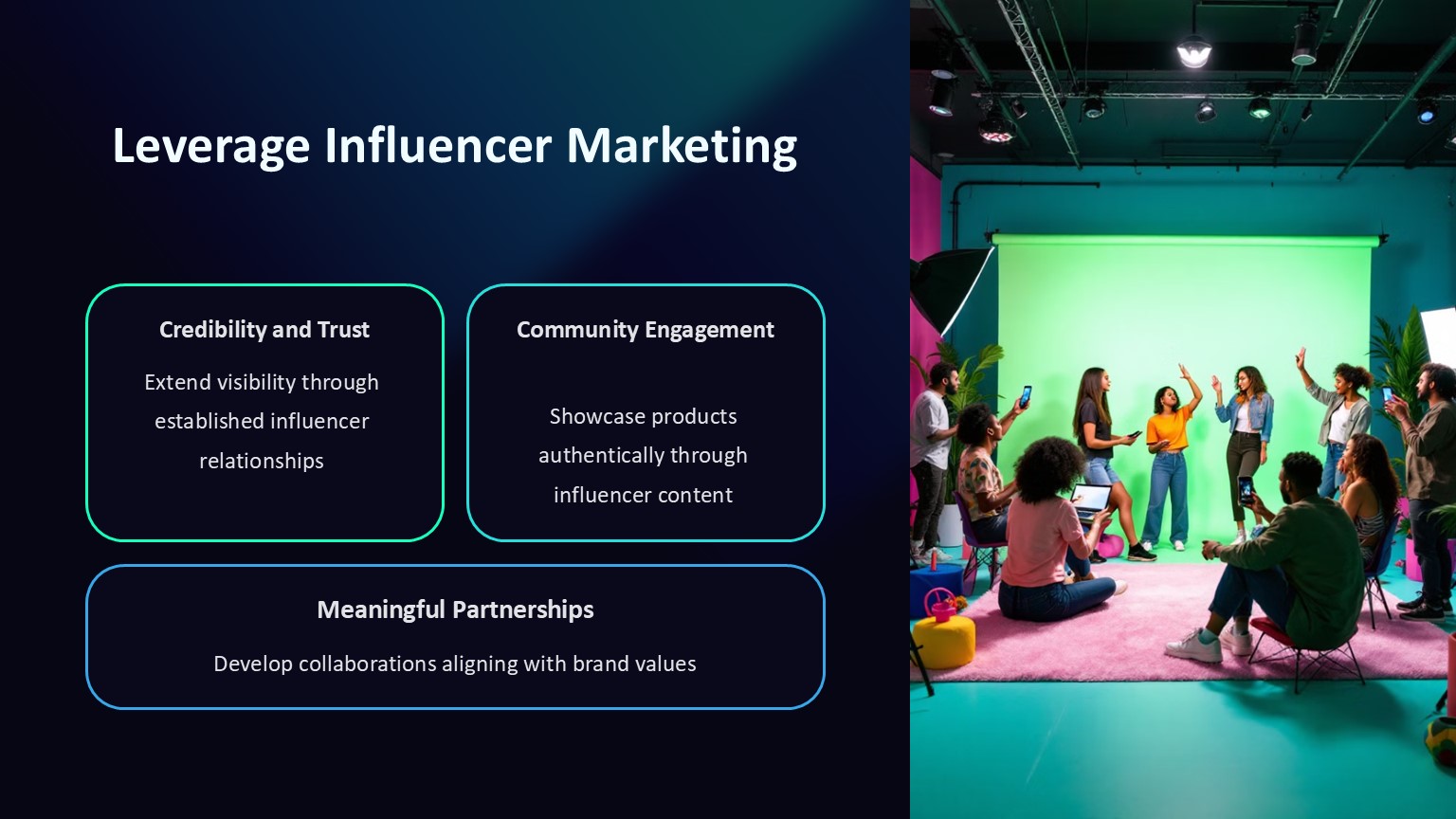
Influencer and affiliate marketing can be extremely effective in boosting visibility during a crisis. Consumers trust recommendations from people they follow, especially during times when their purchasing behavior is influenced by emotions or uncertainty.
Why Influencer Marketing Works During a Crisis:
- Credibility and Trust: Influencers already have established trust with their audiences. By collaborating with influencers who align with your brand values, you can extend your visibility to a new, engaged audience.
- Community Engagement: Influencers can provide more authentic, engaging ways to showcase your product or service, such as through tutorials, reviews, or live streams.
How to Leverage Influencers:
- Find the Right Influencers: Look for influencers whose values align with your brand. They should have an audience that trusts their opinion and a history of engagement. Micro-influencers can be particularly effective as they often have more engaged and loyal followers.
- Create Meaningful Partnerships: Instead of just paying influencers to promote your products, develop partnerships that are meaningful to both your brand and their audience. This could be through co-hosted events, charity initiatives, or behind-the-scenes content.
6- Invest in Customer Support
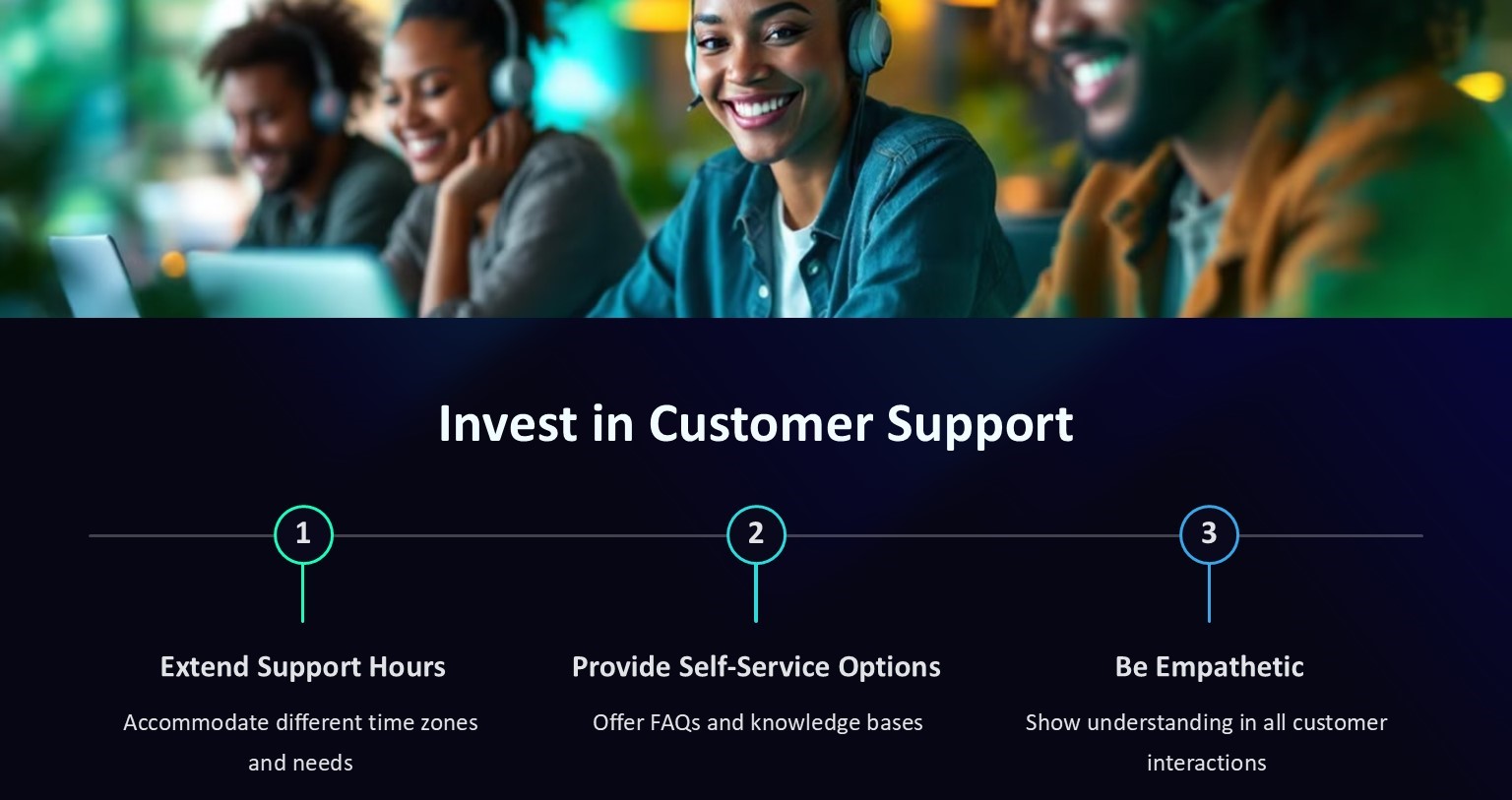
During a crisis, customers may have more questions, concerns, and needs than usual. Ensuring that your customer support is easily accessible, responsive, and empathetic will not only keep your business visible but also help retain loyal customers.
Best Practices for Customer Support During a Crisis:
- Extend Support Hours: If possible, extend your customer service hours to accommodate different time zones or give customers more time to reach you. Alternatively, offer live chat options for instant support.
- Provide Self-Service Options: A comprehensive FAQ, knowledge base, or chatbot can help customers get the answers they need quickly and without hassle.
- Be Empathetic and Understanding: When responding to customer inquiries, show that you understand their concerns and are working to resolve any issues. A customer service representative’s tone should reflect empathy, especially during challenging times.
Conclusion
The key to keeping your business visible during a crisis is adaptability. A crisis may require you to change your messaging, your product offerings, or the way you engage with customers, but those changes don’t mean you have to sacrifice your brand identity or values. With clear communication, a strong digital presence, customer loyalty initiatives, and a willingness to adapt to changing circumstances, you can ensure your business stays relevant and visible during the toughest of times.
At the same time, remember that crises eventually pass. The relationships you build with your customers now, the value you offer them during these times, and the trust you build will lay the foundation for continued success once the storm has passed. With the right strategies in place, your business can not only survive a crisis but emerge stronger and more visible than ever before.
Frequently Asked Questions
1. Why is communication so important during a crisis?
Communication builds trust and keeps customers informed about any changes, challenges, or updates. Clear, honest communication reassures customers that your business is actively managing the crisis.
2. How can I adjust my marketing strategy during a crisis?
Focus on empathy, transparency, and the value your products or services can provide in the current situation. Shift your messaging to be customer-centric and address their immediate concerns.
3. Should I cut back on advertising during a crisis?
Not necessarily. While you may want to adjust your budget, maintaining some level of advertising can help keep your brand visible. Consider using more cost-effective digital platforms like social media and Google Ads.
4. How do I engage with customers online during a crisis?
Increase your social media activity, respond promptly to inquiries, and create relevant content that addresses customer concerns. Virtual events or live streams can also boost engagement.

